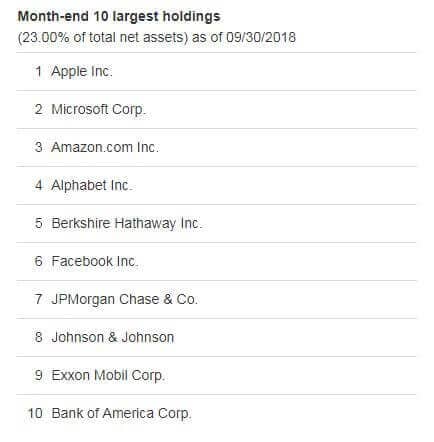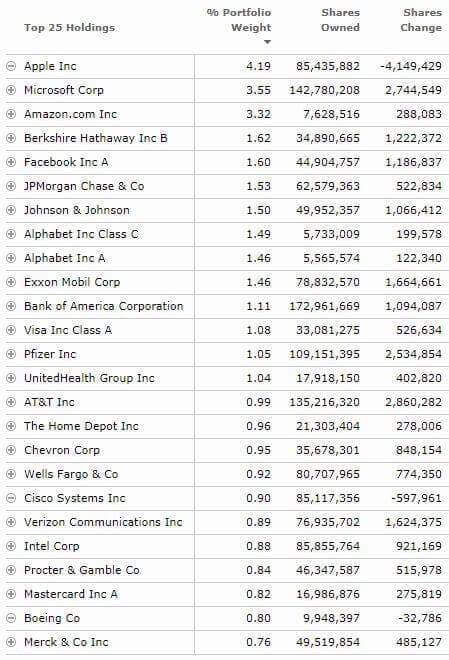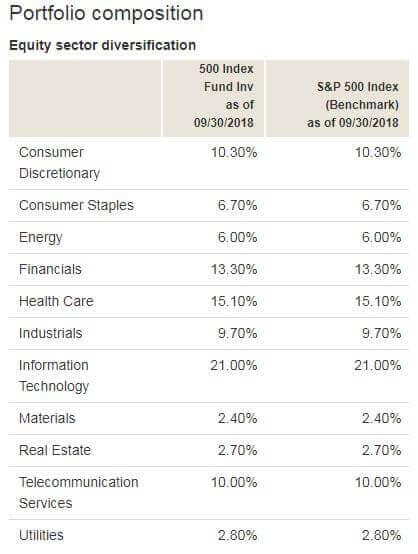The Big Problem With Index Funds You Should Know
When I started reading about investing I got really excited to start my journey and make some money in the stock market, but I soon found out there’s a lot that goes into investing.
I mean, of course, you can just put some money in a company and hope it does good but that isn’t how you become a good investor.
To be a great investor you need to look at the company’s income statements, balance sheets, cash flow and read annual reports to get an understanding of where the company is headed.
Are they innovating? What are their competitors doing? Is the company under good management? Etc…
As I said, there is a lot that goes into stock analysis, and as an investor you do this over and over again to build a great portfolio.
(now, of course, there is always trading but let’s stick with long-term investing for this post)
So, yes, it’s a lot of work and it takes a lot of time but I then came across this beautiful thing called an index fund!
If you don’t already know, Index funds match the market (specifically an index like the S&P 500).
But…
There is a big problem with most index funds that nobody really talks about, index funds can cause you to invest in overvalued companies.
Let’s dig a little deeper.
The Big Problem With Index Funds

Index funds are great and this post is not to turn you away from index funds but to educate you on both sides of index funds.
I already went over why you should invest in index funds in my post the best reasons to invest in index funds but I’m going to play devil’s advocate in this post.
So what is the problem with index funds?
Well, think about it, by investing in an index fund you are investing in many different companies with no control over your investments.
Let’s use an S&P 500 index fund for this post to make things simpler, so if you invest in the Vanguard VFIAX then your money will be invested in 509 holdings.
Your money will be invested in these 509 holdings without knowing which companies are overvalued or performing poorly.
Also, one of the aspects of index funds that contribute to overvalued stocks is the market-weighted (cap-weighted) nature of most index funds including Vanguard funds.
What this means is that your money is not evenly distributed among the 509 holdings, more of your money is invested in larger companies, mostly those in the top ten holdings.
According to Vanguard, the top ten holdings in the VFIAX fund accounts for 23% of the total net assets. What does this mean? Well, this means that if you invest $100 in the VFIAX, $23 will buy into the top ten holdings (not evenly) and then $77 would buy into the other 499 holdings (not evenly).

Of course, this percentage can change because stock prices fluctuate every day.
Now, if you look at this chart of the VFIAX holdings by Morningstar you can see that Apple (the number one holding) has a weight of 4.19% while Merck & Co Inc (the 25th holding) has a 0.76% weight (at the time of writing this).

Just like the previous chart, these numbers can change due to the changes in the stock market every day.
This means that out of the $100 you invest, $4.19 is invested in Apple and only $0.76 is invested in Merck & Co Inc.
By now I hope you have a basic understanding on how most index funds work and just to mention there are equal-weighted index funds but these usually have higher fees.
Now let’s dig a little deeper on how index funds cause overvalued stocks.
Overvalued Stocks

As we went over before with all those numbers that probably put you sleep, index funds are great and provide diversification but they cause you to invest heavily in large market-cap companies.
According to an article by the LA Times, more and more investors are pouring money into passive investments with the use of index funds and for good reason, it’s cheaper, performs well and it’s just easier.
But…
The article also states that index funds cause overvalued stocks and inflated market sectors. Can you guess what’s the hot market sector right now? If you said the tech sector then you are right.
Looking at the screenshot of the VFIAX top ten holdings again you can see that the top 4 holdings are all tech companies and then Facebook is at number 6 causing 5 out of the top 10 holdings to be tech companies.

If you look at the VFIAX’s sector diversification you can see that the tech sector makes up for more than 20% of the index fund.

Before we continue on I just want to say that this post is not to deter you from investing in index funds, it is to merely educate you on the negative side of index funds. As you will see shortly, I recommend investing in index funds and I’ll go over what you can do about this problem with index funds.
So, the more money that flows into index funds, the more overvalued these companies and sectors get.
For example, let’s say the great Apple starts to have declining sales, lawsuits, lower profits, etc… but the stock keeps rising. Does this make sense? The answer is no.
If the company is losing money why is the stock rising? The stock is just a reflection of the companies performance right?
Yes and there might be a few reasons that can cause this but one of the biggest reasons is index funds. We can see that Apple is the largest holding in the index, so the index fund will invest a high percentage of your money in Apple.
This causes the Apple stock to rise even though the company is performing poorly, thus causing distorted prices leading to overvalued stocks and sectors.
So what can you do?
Overcoming This Problem With Index Funds

Well, if you invest in index funds then this problem is pretty much inevitable but does it really matter to you?
It might not because most people aren’t looking to beat the market, they just want to invest their money to grow over time and the history of the S&P 500 shows us this is exactly what happens.
As I stated before, this post is not to prove index funds are bad it’s just to show you the problem with index funds.
I invest in index funds and my personal opinion is that all beginner investors should invest in index funds but be aware of this problem with index funds.
Here is a quote from the great John (Jack) Bogle who created the first index fund:
“Don’t look for the needle in the haystack. Just buy the haystack.” – John C. Bogle
As an index fund investor, your plan is to invest and hold for years and keep investing through bull markets and bear markets. Should you care about an overvalued company or sector at times? Not really.
Companies rise and fall all the time. One sector will boom now but bust later then another sector will do the same. So, just buy the whole market and hold it for years and years to come.
The big problem with index funds really comes in when most investors start to invest in index funds, the outcome will be complete chaos.
According to Reuters, passive investments account for 29 percent of the U.S market and 17.5 percent of the global equity market.
So, passive investments are not taking over active investments as yet but with the popularity and more companies offering passive investments, how long until it does?
The thing is, there is a need for active investors in the market to set the price valuations for companies.
According to Robert Shiller, this will always be the case because as long as there is a stock market there will be active investors trying to beat it.
So…
This big problem with index funds doesn’t seem like something you should worry about at this time but it is something to keep in mind while you invest in index funds.
Conclusion
There you go, the big problem with index funds! Or is it a big problem after all?
There was a lot of statistics and numbers in this post that probably put some of you to sleep but if you are an investor or plan to be an investor this problem with index funds is very important to know.
As we went over in this post, index funds are great investments for people who want to be passive investors and get good returns with low fees.
I do not give financial advice but my opinion is that everyone should invest in index funds for a good portion of their portfolio.
I highly recommend using Vanguard to invest in index funds, they are trustworthy and offer some of the lowest fees in the business.
However, most Vanguard funds have a minimum of $3,000 to invest in their index funds. you could invest in their ETF’s but I recommend investing in the index funds so you can set up automatic deposits and invest in fractional shares.
Also, you have to build your own portfolio which might be simple to some but confusing to others.
So if you are just starting out investing then I have a deal for you! It’s with Wealthfront and they are awesome! I invest some of my money with them so they’re legit.
Wealthfront makes it really easy to invest, you just need to answer a few questions which will determine your risk tolerance and they set up a portfolio for you and then you just invest!
All you need is $500 to invest and with my deal, you will get your first $5,000 invested for free!
Click here to sign up and invest your first $5,000 for free!
I also use Robinhood to invest in individual stocks to be more active in the market and invest more in companies I believe in.
According to Investopedia, dampening personal satisfaction is one of the downsides to passive investing. So, if you want to test the waters with individual stock investing then Robinhood is the way to go. You can buy and sell stocks for free and when you sign up with my link you will get a stock for free!
Learn more about Wealthfront and Robinhood in my post the 9 top investing apps for beginners.
I recommend using up to 10% of your investing money to use for individual stock investing at first. This way you can invest in companies you believe in but you’re also taking a lot of risk off the table with the bulk of your money diversified in index funds.
Even though index funds have this problem hovering above their head, they are great investments.
If you want to know more about index funds be sure to check out my post on the best reasons to invest in index funds here.
What are your thoughts on index funds? Do you think that this problem with index funds is something to worry about?
Just a reminder, all points in this post are my opinions gathered from research. I have recommended products to use but these are based on my preference and should not be misconstrued as financial advice. If you have any questions regarding your investments please seek a financial advisor.






